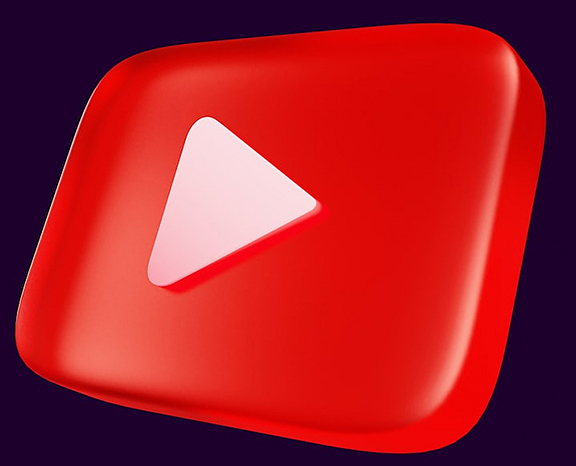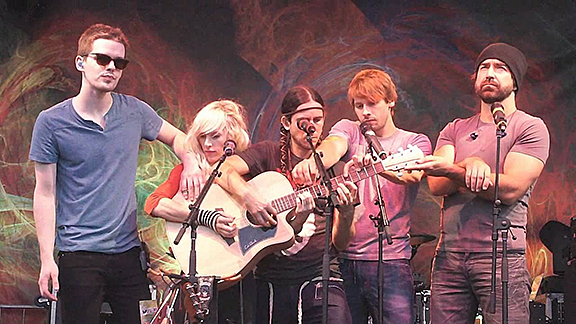Wither News, Books, Stardom?
It seems like such a short time ago I was touting the value of the “podcast” to a company I worked for – suggesting that the nascent platform would make a great vehicle for having a vendor talk directly to customers about their cares and concerns. Commercials are great, but they’re aimed at the broadest possible audience. A podcast could, I reasoned, bring a computer company, a truck manufacturer, a home repair company, directly to its users.
And all that was because I had discovered a prescient priest out of The Netherlands who was podcasting to iTunes back in the first decade of this millennium. Podcasting was in its infancy, and Father Roderick, as he was known on his podcast, had discovered that he could speak directly to a flock of tens of thousands, millions, with his messages, both religious and simply humorous or cultural, by talking into a microphone and letting the Internet do its magic
He eventually spun his podcast into a network (another novel idea) called SQPN (Star Quest Production Network), for which he added other podcasters and began a literal network of shows, not limited to his faith-based programming, but delving into computer gaming and fantasy and sci-fi books and movies. He was quite literally on the cutting edge of what I now see blowing up all around me in not just the world of “citizen journalism,” but in publishing, art, movies and TV shows.
I am, admittedly, a big fan of podcasts, and long since made a choice to listen to them as I ready for the day, or travel, or do chores around the house, as opposed to the newscasts or op-ed shows. Yes, you have to be careful not to buy all that they say, and sample widely, if you choose to get your news and information content this way – but since that seems to have become the norm for TV networks as well, why not broaden your options?
But interestingly, in the years since I’ve been adding (and dropping) podcast/vlogs/YouTube shows from my list, I’ve watched in amazement as YouTubers grew to be huge stars and household names, develop new platforms, and even launch networks devoted to their style of commentary and reporting. Many of them emulate news and commentary desks; some send reporters out into the field; not a few have a single mic in the garage and some of the elite “content creators” have elaborate news sets and high-end graphics.
At the same time, have you been in a bookstore lately? Or gone book shopping on Amazon? More and more writers have bypassed the publisher and are going straight to the reader with self-publishing. That has given birth to direct offers of what used to be the province of the literary agent: writing coach, layout artist, editor, publisher. Certainly it will follow as the night-the-day that self-published writers and editors will create imprints for their work, allowing new and untested writers to get a chance at selling their story without the wall of the “best-sellers” to block them.
I started noting not that long ago that the streaming platforms, Prime and Netflix chief among them, had started producing their own content, in the form of series, films, and documentaries. And not long after they began their projects – some of them perhaps too ambitious – they began to acquire series, films and production services in as-yet untested places – Norway, Sweden, Denmark, and Spain, among them. Sometimes the shows are shot in the local language, other times they’ve identified their American/English speaking audiences and opted for the broadest distribution. Either way, as consumer demand for new shows, new ideas, and more entertainment spiked during COVID lockdowns, producers realized they didn’t have to be confined to Hollywood, the US, or even big-name stars to make a hit.
Then there is the sudden rise of the “influencer.” It began with “YouTubers” who gathered significant audiences (and paydays) as a result of having a winning personality, looks, ideas, or combination thereof – and who could sell it to a growing audience in short clips, observations, and “hits.” TikTok and Instagram created “models” out of aspiring girls (and guys). 
I remember not that many years ago a pop group, Walk Off the Earth, did a video in which all five band members played a single guitar on their cover of Somebody That I Used to Know. Now, it’s turned around: a single musician or singer will play or sing with himself and create a big number out of his/her skills alone. And most recently, actors of varying talent (and some of them are, very, talented!) have begun doing skits or scenes featuring – just them, playing all the roles. I’m amazed at not only their creativity and sense of fun, but the degree to which these solos will not only write their material, but set it, costume it, act it, edit it – and put out one or more on a daily basis! For that effort alone they deserve a listen. Some of the comedians are genuinely funny, and what a deal for us, the consumer and audience, to be able to reach them directly.
Most recently, you’d have to have been asleep somewhere to have missed the Saga of Tucker Carlson, a 50-something news and commentary talent who started out as a writer and commentator on CNN. With his trademark bowtie, Carlson developed an audience (as a conservative/right voice) and eventually moved to the Fox News Channel. When he was let go, he simply launched his own brand/show because it was possible to gather huge numbers by broadcasting to the audience direct, and because Elon Musk had enabled it by opening the platform-previously-known-as-Twitter, now X, to any and all voices. Tucker most recently traveled to Russia and interviewed President Vladimir Putin in a first-of-its-kind long-form session, “breaking,” as they say, the Internet.
What’s the point? Now more than ever before consumers have the say as to what becomes popular. As long as a form of payment, whether direct to the platform, in the way of ads, monetization, or some as-yet un-dreamed of scheme, is forthcoming, content creators will be providing us with information and entertainment. They will be watching what works and doesn’t work, and following suit (but even better if they can) or listening to their own muse and offering their original artistry and ideas for our consumption.
Naturally, there is always a downside with open communication and untrammeled “entertainment.” There’s porn and smut and bad material and crazy ideas being sold. There are lies, wild theories, bad reporting and terrible performances. But because there are far more than the old three channels and a handful of AM stations, a few glossies and a lot of pulps, limits to whose records get cut and casting couches – we, the consumers, are more than ever in the driver’s seat. We can pick and choose, watch or not, move on to something else if we’re bored or “are not entertained.” We should use this power wisely, if we can, and do our best to promote our favorites and those who earn our respect. The fans have always had some say, but never more than we do now. It will be interesting to see where we can take it!










